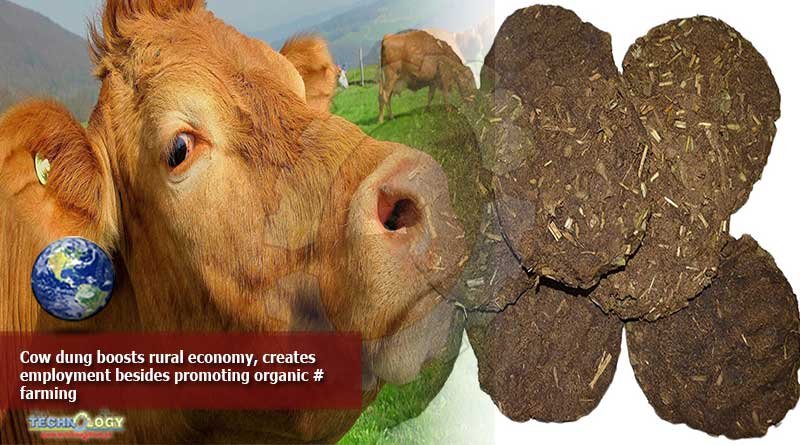Other than improving the rural economy the cow dung can have long term impact on animal husbandry and organic farming.

Chhattisgarh’s Godhan Nyay Yojana has the potential of becoming a game-changer in the field of agriculture and cattle rearing. Other than improving the rural economy, this scheme can have long term impact on animal husbandry and organic farming, says Suryakant Dewangan
On July 20, the Chhattisgarh government launched the Godhan Nyay Yojana under which cow dung will be procured from livestock owners for production of organic fertilisers. As per the scheme, the government will buy cow dung from registered livestock owners at Rs 2 per kg and, after processing it into vermicompost, sell it to farmers for Rs 8 per kg. Through this scheme, the government aims at giving a boost to its rural economy and creating employment opportunities besides promoting organic farming.
New hope for farmers
Launched on the auspicious day of Hareli Parva (a folk festival celebrated by farmers in central India by worshipping the tools and animals used in farming), this scheme brings new hopes for agriculturalists and livestock owners. Implemented by the Department of Agriculture and Gram Panchayats, the scheme involves collection of cow dung by the Gauthan (cow shelter) Committee and Self-Help Groups (SHGs) in each village. To be eligible to sell the dung, the beneficiaries are required to register themselves at the committee after which they are given a balance sheet. The quantity of dung sold at the centre is recorded in this sheet and is used to make payment directly to the beneficiary’s bank account.
Trained by the Department of Agriculture, SHGs have a crucial role to play in the successful execution of this scheme. These all-women groups are responsible for preparing the vermicompost using the procured cow dung. Large tanks of 1000 kg capacity are being constructed in all the existing and forthcoming cow shelters. A 1000 kg of cow dung produces 700 kg of vermicompost in approximately 45 days. After the quality check of the compost by agriculture authorities, packages of two, five and 30 kg are created and sold at the decided rate. With this, farmers of the state, who are currently purchasing chemical fertilisers at expensive prices and are using them in the fields, are expected to shift to organic fertilisers.
Source of extra income
The initial response to the scheme has been promising specially by the farmers and livestock owners as the dung has now become a source of additional income. From the date of launch till August 1, a total of 82,711 quintal dung was sold by 46,964 livestock owners to 4,140 cow shelters in the state. At the rate of Rs 2 per kg, the government has given Rs 1,65,000,00 to the sellers. In Kanker district alone, 2,221 registered sellers had sold more than 2,500 quintal of dung in the first 15 days of the implementation of the scheme. “Earlier, we were not bothered much about cow dung but now we make sure that we collect it and sell it to the Gauthan Committee,” shared Shamita Uikey, a resident of Haatkondal village in Durgukondal block.
Not owning any cattle hasn’t prevented farmer Rati Ram Kumeti of Mungwal village in Bhanupratappur development block from benefitting from the scheme. “After completing my farming chores, I roam around the village and collect cow dung. This way, I am able to sell 70-80 kg to the committee,” shared Rati Ram.
According to Mahesh Mandavi, President of the Gauthan Committee in Govanda village, Durgukondal block, “Earlier, livestock owners could earn by selling only cow’s milk but through this scheme, they are able to earn some additional income by selling cow dung.”
Boost to organic farming and cattle rearing
The scheme has not only assured an additional income of Rs 1500 to 2000 per month to the farmers and livestock owners but it has also made it easier for them to purchase and use organic manure. Earlier, it would take them three months to compost manure using cow dung. The lack of training and knowledge resulted in low quality manure. Through this scheme, they are able to save time and provide good quality organic manure to the soil thus maintaining its fertility and health. In urban areas, the procured cow dung will also be utilised for manufacturing other products like incense sticks, pots, lamps, idols etc.
This “first of its kind” scheme has the potential of becoming a game-changer in the field of agriculture and cattle rearing. Other than improving the rural economy, this scheme can have long term impact on animal husbandry, organic farming and the environment, if implemented properly taking into confidence the entire farmer community of the state.
the article is originally published at daily pioneer.
